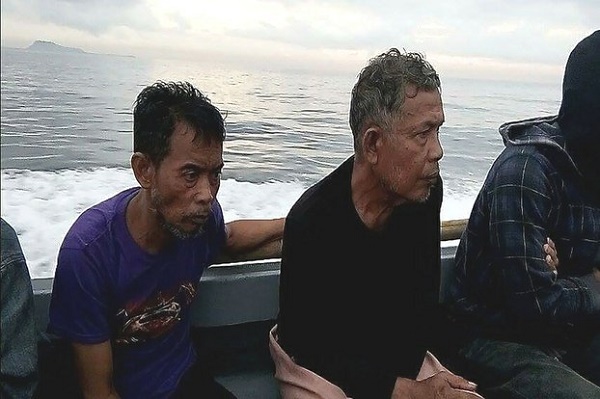Kidnaps: Nations urged to review failed strategy
Published on: Sunday, February 23, 2020
By: Zam Yusa
 Two Malaysian sailors are transported aboard a motorboat after they were rescued off Sulu island in this undated photo released by the Philippine military, March 23, 2017 (Photo: Westmincom / Armed Forces of the Philippines).
Two Malaysian sailors are transported aboard a motorboat after they were rescued off Sulu island in this undated photo released by the Philippine military, March 23, 2017 (Photo: Westmincom / Armed Forces of the Philippines).
KOTA KINABALU: The Malaysian, Philippine and Indonesian governments must coordinate and secure the Sulu Sea if there is to be any effective solution to ending the spate of kidnappings by the Abu Sayyaf terror group or their accomplices off Sabah.
This was the view of Indonesian terrorism experts who said that currently there was lack of effective coordination of assets engaged by each country.
ADVERTISEMENT
Ulta Levenia, a lead researcher for a Jakarta-based think tank, Galatea and Alban Sciascia who is director of Singapore-based risk assessment Semar Sentinel Pte Ltd, said this in their findings on the never-ending kidnappings.
“Mainly, all participants tend to be reluctant to share intelligence and information, while operations are not conducted together, but are coordinated at best. Moreover, there is a technical incapacity to exchange data in real time,” they said.
They said each country’s military and security assets such as patrol vessels, warships and maritime surveillance aircraft should be engaged to secure the area.
“More effective coordination, including the technical capacity to exchange information in real time and coordinated assets is needed in the waters shared by Indonesia, the Philippines and Malaysia, especially by the Eastern Sabah Security Command [Esscom] that is responsible to secure eastern Sabah,” they said.
ADVERTISEMENT
They also pointed out that even the approach taken by the governments to deal with the Abu Sayyaf look obsolete as the latter and their accomplices have gone high-tech by using GPS (Global Positioning System) to identify the locations after being tipped off on potential targets.
“The cooperation should also cover joint investigations regarding the accomplices who support the Abu Sayyaf with information about vessels and fishermen.”
ADVERTISEMENT
OPINION: Why kidnappings continue in eastern Sabah waters
They said that the Abu Sayyaf were surprised to receive ransom money to free some initial Indonesian hostages from the Indonesian side in 2016 that thereafter they began targeting more Indonesian fishermen in Sabah waters.
“To do so they (Abu Sayyaf) developed strong connections in Sabah, where it managed to get information on ships with Indonesian crew…they were able to track ships with GPS or help from accomplices in Sabah who agreed to provide the location, routes and names of ships in exchange for money.”
The researchers also pointed out that these three nations are now dealing with “anak ilo” or children who lost their parents during the armed conflict in the southern Philippines.
They said kidnapping for ransom has been somewhat institutionalised by the Abu Sayyaf with orphans of deceased fighters now taking over. They cited a hostage who said that the group that kidnapped them were just kids of those who carried out earlier kidnappings.
The Indonesian Parliament was recently told that it is surprised that Malaysia seemed unable to secure its maritime borders and that this was why kidnapping of Indonesian fishermen off Sabah keep happening.
Stay up-to-date by following Daily Express’s Telegram channel.
Daily Express Malaysia










